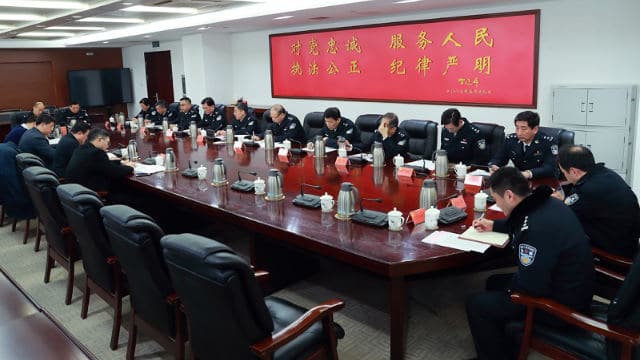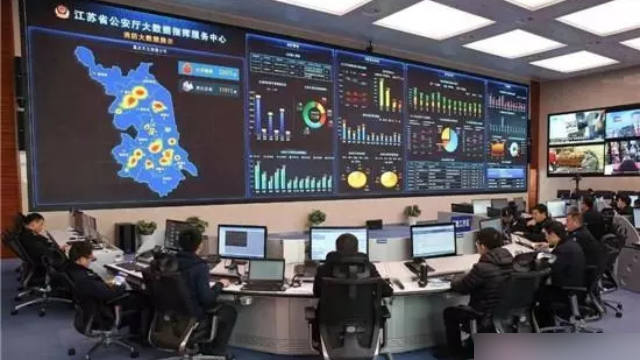A recently uncovered confidential document details the 2018 campaign to crack down on this persecuted Christian new religious movement in a city of Jiangsu Province.
Lin Feng
The document, issued in April 2018 by the Public Security Bureau in a city of Jiangsu, an eastern-central coastal province of China, specifies the details of a campaign to suppress The Church of Almighty God (CAG), jointly implemented with the province’s Public Security Department. In 2018, as part of the nationwide campaign against the CAG, 1,984 Church members were arrested in Jiangsu Province, more than in any other region of China, according to the Annual Report on the Chinese Communist Government’s Persecution of The Church of Almighty God.

The document made provisions for the mobilization of units under the supervision of the Public Security Bureau and demanded that their leaders “attach great importance to, take personal involvement in, and participate in the whole process of” this campaign. Specific responsibilities were given to 16 police units to share information, data and other resources to “wage a composite battle of intelligence and technology.”
The Public Security Bureau appointed its units in charge of national security to lead the campaign, while those supervising the city’s public security were instructed to control the campaign’s key targets and to guide community police personnel in launching investigative operations. Additionally, the city’s public security personnel were entrusted with the implementation of anti-xie jiao community propaganda work, lead by the Bureau’s political division, by using mainstream and specialized public security media as well as online resources. The domestic security unit was also assigned anti-xie jiao propaganda tasks and was as well responsible for investigating leads at universities and places of employment. The responsibility to investigate CAG-related websites and online activity was given to the unit in charge of cybersecurity, and CAG-related data accumulation work was assigned to the communication unit.
CAG members overseas were also included in the scope of the government’s crackdown: Relevant police units were instructed to carry out extensive intelligence work overseas and investigate the status of the church members living or visiting outside China, those who have traveled abroad or had valid documents to do so.
Through scrupulous monitoring, even church members that applied for travel documents were apprehended. One such believer told Bitter Winter that in May 2018, he was arrested by the police while applying for a passport. In the process of torturing and interrogating him, the police claimed that they aimed at extraditing to China the CAG members who have fled to other countries, such as South Korea and the United States. Once they return to China, the authorities will arrest them.
Even CAG members’ movements inside the country were also to be monitored, as per the document. Not only some church members were arrested while taking a train, but also passengers on a bus or a train that a CAG member happened to travel were investigated for possible connections to expand the scope of surveillance.
As Bitter Winter has previously reported, the Chinese government at all levels is using high-tech surveillance technologies, such as big data and facial recognition, to suppress religious belief. The Jiangsu city’s document, therefore, demands that the authorities make full use of the database with the information on members of religious groups listed as xie jiao, created by the Ministry of Public Security. The document also mentions “the national security actual-combat platform” but does not provide any specific details on its content, who has created it or is in charge of. Using these tools, police officers were instructed to identify the key CAG members in the city and continue other image-based reconnaissance work.

Other high-tech surveillance tools, such as secretly placed tracking and monitoring devices in the electric vehicles of some church members, have been used in the campaign against the CAG in Jiangsu.
Traffic and patrol police, as well as special and criminal police units, were responsible for gathering leads on CAG members and were called on to collaborate in the execution of arrests.
To guarantee the full-on offensive of the campaign against the CAG, the authorities have also called on the city’s official religious institutions, government officials, patriotic activists, and other citizens to organize mobilization meetings, prepare and distribute thematic materials to incite the masses to report CAG members. According to some church members, government personnel have posted notices offering rewards for reporting CAG members at a wide range of locations, like road intersections, school gates, and entrances to residential building, with reward amounts ranging from 100 RMB to 5,000 RMB (from about $15 to $745).
Go to Source
Author: Lin Feng




